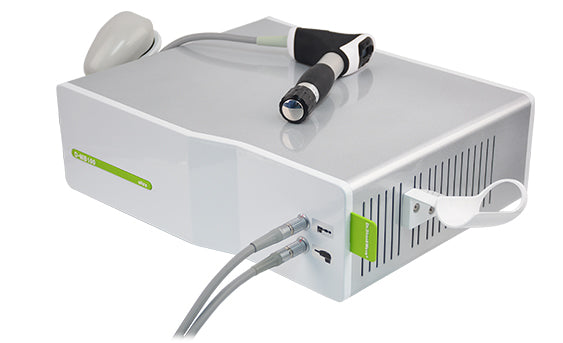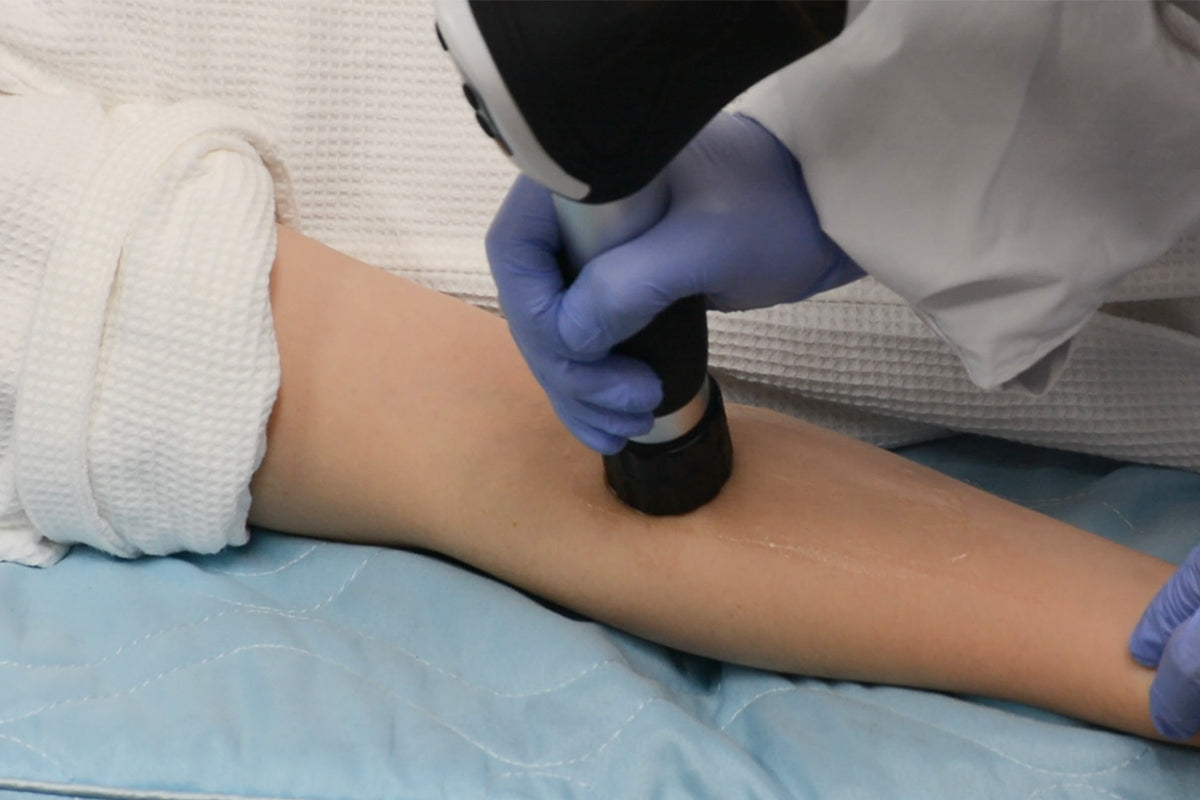Are you looking to improve the wellness offerings at your brand, salon, or #clinic? There is a lot of confusion about shockwave and #ultrasound therapies. Many don’t understand if they are the same treatments or not. Let us help clear up the mystery! In this blog post, we will look at what each therapy entails and compare their effectiveness to determine whether one prevails over another for certain conditions.We’ll review how shockwave therapy differs from ultrasound therapy in terms of cost, convenience, applications and recovery times. Armed with this information, you can make an educated decision as to which modality best achieves your desired outcome so that you can give your clients optimal results every time!
Overview of Shockwave Therapy and Ultrasound Therapy
#Shockwave therapy and ultrasound therapy are two types of non - invasive treatments that are becoming increasingly popular for their ability to alleviate pain in various parts of the body.Shockwave therapy uses high-energy sound waves to stimulate healing and reduce inflammation, while ultrasound therapy utilizes high-frequency sound waves to promote tissue repair and reduce pain.Both treatments have been shown to be effective in treating a range of conditions such as musculoskeletal injuries, joint pain, and even #erectiledysfunction. Compared to invasive surgical procedures,shockwave and ultrasound therapies offer patients a safer and less painful alternative for managing their pain and healing their bodies. With their proven track record for helping individuals recover from a variety of ailments, these therapies are quickly gaining recognition as a valuable addition to modern medical treatment options.

Differences between the two therapies
When it comes to therapy, there are a variety of approaches to choose from. Two popular options are cognitive behavioral therapy (CBT) and psychodynamic therapy. While both aim to improve mental wel l- being, they have fundamental differences. CBT is more action-oriented and focuses on changing negative thoughts and behaviors. On the other hand, psychodynamic therapy dives into the unconscious mind to find underlying emotional conflicts that may contribute to current struggles. Ultimately,the choice between the two depends on individual preferences and needs. It's essential to explore both to determine which therapy will be the most effective for achieving personal growth.
What medical conditions can benefit from each therapy
Medical conditions can be tricky to navigate, but therapy can often provide some relief. For example, patients with anxiety and depression may benefit from cognitive behavioral therapy, while those with chronic pain may find relief with #physicaltherapy. Patients with substance abuse disorders may find support through group therapy sessions. Additionally, those with speech or communication difficulties may benefit from speech therapy. It's important to consult with a #healthcare professional to determine which therapy is best for your particular medical condition.

Side effects associated with each therapy
It's important to understand that every therapy comes with potential side effects. For example, chemotherapy can cause hair loss, nausea, and fatigue. However, these side effects are often outweighed by the benefits of the treatment. Radiation therapy can cause skin irritation and fatigue, but it's an effective way to target cancer cells. Immunotherapy can cause flu-like symptoms and allergic reactions, but it can also help the immune system fight cancer. It's important to have open communication with your healthcare team about any side effects you're experiencing so that they can help manage them and ensure you're receiving the best possible care.
How to determine which therapy is right for you
Choosing the right therapy can be a daunting task, but it doesn't have to be. It's important to remember that therapy is a personal journey towards mental and emotional well-being, and what works for one person may not work for another. When you're trying to determine which therapy is right for you, start by setting realistic goals and expectations for what you hope to achieve. Consider your personal preferences, like whether you prefer a more structured or unstructured approach. Don't be afraid to do your research and ask questions when you meet with potential therapists. The most important factor is finding someone who you can trust and who makes you feel comfortable. Remember, therapy is about finding a safe and supportive space to work through your challenges and find healing.
How to find a qualified provider of either therapy
Are you struggling to find a therapist or counselor that specializes in your specific needs? It's important to find a qualified provider that you feel comfortable opening up to. Don't be afraid to do some research and ask for recommendations from trusted friends or family members. You can also check with your insurance company for a list of covered providers in your area. Additionally, there are online directories that allow you to filter based on specific criteria such as location, area of expertise, and type of therapy. Remember that finding the right therapist is a process, so don't be discouraged if it takes some time to find the perfect match for you.
Ultimately, both #shockwavetherapy and ultrasound therapy can be beneficial treatments for various medical conditions. Shockwave therapy is an excellent option for those looking for an effective treatment that is minimally invasive or doesn’t require any type of injection or surgery. Ultrasound therapy may help to increase circulation and decrease inflammation in the body. It is important to discuss your medical condition with your healthcare provider before deciding whether shockwave or ultrasound therapy is right for you. Additionally, if you are looking to undergo either of these therapies it's critical to do research on providers and make sure they have experience providing the procedure you need. Remember thatShockwave and Ultrasound Therapy can offer relief from many medical conditions but seeking out the right provider could make all the difference when it comes to the success of the treatment plan.
To learn more about this machine, please feel free to contact us!

